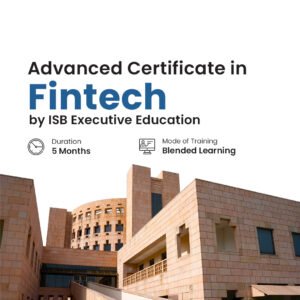The AI industry is at an all-time high, with a projected CAGR of 38.1%. It is estimated that the AI industry is going to reach a staggering $1,811.8 billion on a global level. This growth can also be attributed to ground-breaking advancements in generative AI tools like ChatGPT and Google Bard.
Both ChatGPT and Google Bard have been huge contributors to revolutionising the way people interact with the text. On one hand, Bard, which is designed by Google, aims at captivating audiences with its exceptional storytelling, whereas ChatGPT, a brainchild of OpenAI, specialises in generating conversational responses that mimic human-like interactions. Both Google Bard and ChatGPT models have gained prominence in the tech world and found applications across various industries.
Keep on reading, to gain a comprehensive insight into Bard Vs ChatGPT comparison, their features, and how their unique product strengths can enhance customer experiences while at the same time helping streamline operations in the digital world of today.
What Powers Google Bard vs ChatGPT?
When it comes to the Bard vs ChatGPT discussion, the first question that comes to mind is- which is better? Both Bard and ChatGPT are extremely advanced chatbots that are powered by AI and they both have gained prominence in the tech world for their ability to generate coherent and contextually relevant text. However, when it comes to Google Bard vs ChatGPT comparison, they both have some differences in their development and capabilities.
Keep on reading to get an insight into the features of both Bard vs ChatGPT.
Google Bard
Bard, developed by Google is an AI-powered chatbot that is created to give fresh, high-quality responses to queries put up by users. Powered by LaMDA , Bard is a large language model that is trained on a huge dataset consisting of text and codes with the primary focus on giving high-quality responses to users. Google Bard is designed to be a chatbot that is not just helpful to users but also informative.
ChatGPT
ChatGPT, was launched in late November 2022 by OpenAI and gained immense popularity. It surpassed 100 million active users within two months of its launch, which makes it one of the fastest-growing consumer applications in history. Based on OpenAI’s, highly advanced language model- GPT 3.5 architecture, ChatGPT is known for its conversational abilities as well as its potential to generate coherent and contextually relevant text to user queries.
Google Bard vs ChatGPT- A Comparison
Below is a side-by-side comparison of the features of Google vs ChatGPT and what makes them unique.
| Google Bard | ChatGPT |
| Designed and developed by Google, Bard is an AI venture by Google into the world of advanced conversational AI. | ChatGPT was launched by OpenAI, in partnership with Microsoft and has gained prominence for its natural language generation abilities |
| Bard AI is powered by the PaLM 2 language model and is known for its capability for advanced conversational abilities as well as a robust grasp of context. | Based on GPT 3.5 architecture, ChatGPT also offers access to an even more advanced GPT-4 model with the ChatGPT Plus subscription. |
| Bard training data is sourced from Infiniset, which consists of Wikipedia, Common Crawl, and web-based documents. Bard’s unique feature that makes it stand out is a real-time web search for the most current answers and research. | ChatGPT was trained on a wide range of text sources, including Common Crawl, Wikipedia, books articles and more. |
| Google Bard is currently offering services for free to users. There are currently no subscription plans available. | ChatGPT is available for free. However, the ChatGPT Plus subscription is available for a subscription fee every month, which provides users additional features. |
| If you want access to Google Bard, a Google account is necessary for sign-up and to join the waitlist. | You do not require a specific email address to access GhatGPT and currently, there is no waitlist as well. |
| Google Bard offers support for more than 40 languages that includes English, Spanish, Arabic, Chinese, Russian, Japanese, Turkish, Portuguese, Hindi, Bengali, German, Indonesian, Marathi, Vietnamese, and many others. | ChatGPT currently offers language support for a whopping 95 languages that includes English, Spanish, Arabic, Chinese, Russian, Japanese, Turkish, Portuguese, Hindi, Bengali, German, Indonesian, Marathi, Vietnamese, and more. |
Endnotes
There is no doubt that in the world of conversational AI, both Bard and ChatGPT are powerhouses and are also extremely impressive language models. When it comes to choosing between Bard vs ChatGPT, the choice depends on specific use and the type of interaction that a user seeks. Both of them come with their own unique set of capabilities and the choice also depends on the preferences and requirements of the user.
If you want to build a successful career for yourself in the field of AI, then joining a senior leadership course in your chosen sector can give your career journey the boost it needs. Imarticus Learning has forged trusted partnerships with global leaders to develop industry-approved learning material, deliver world-class training, and offer internationally recognised certifications. Visit now and seek guidance from experts.













